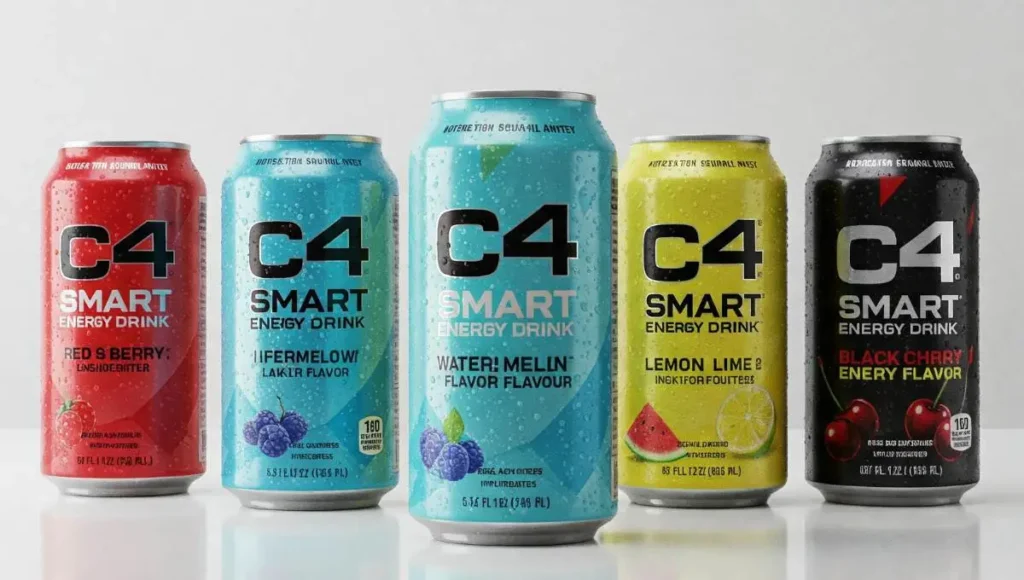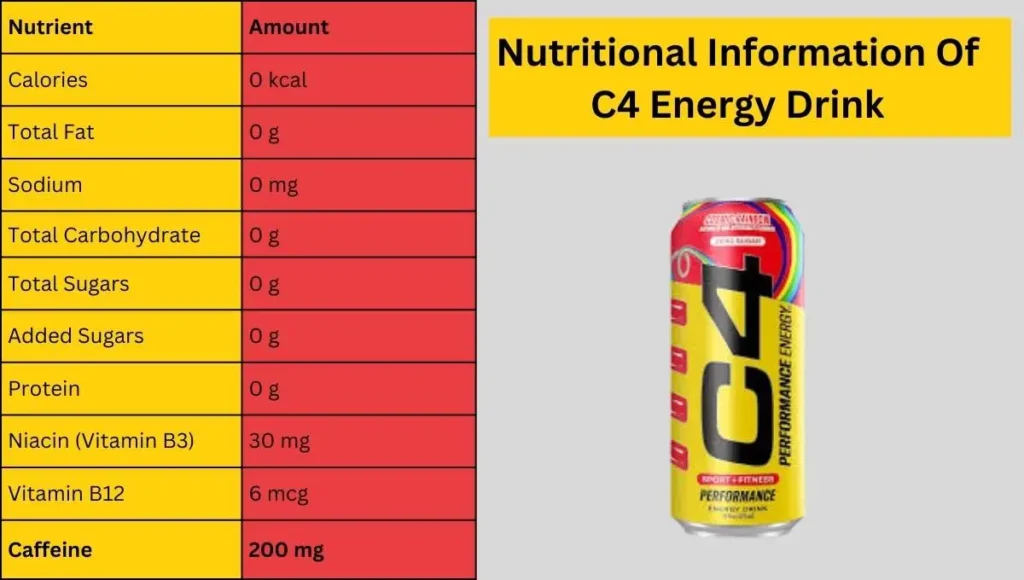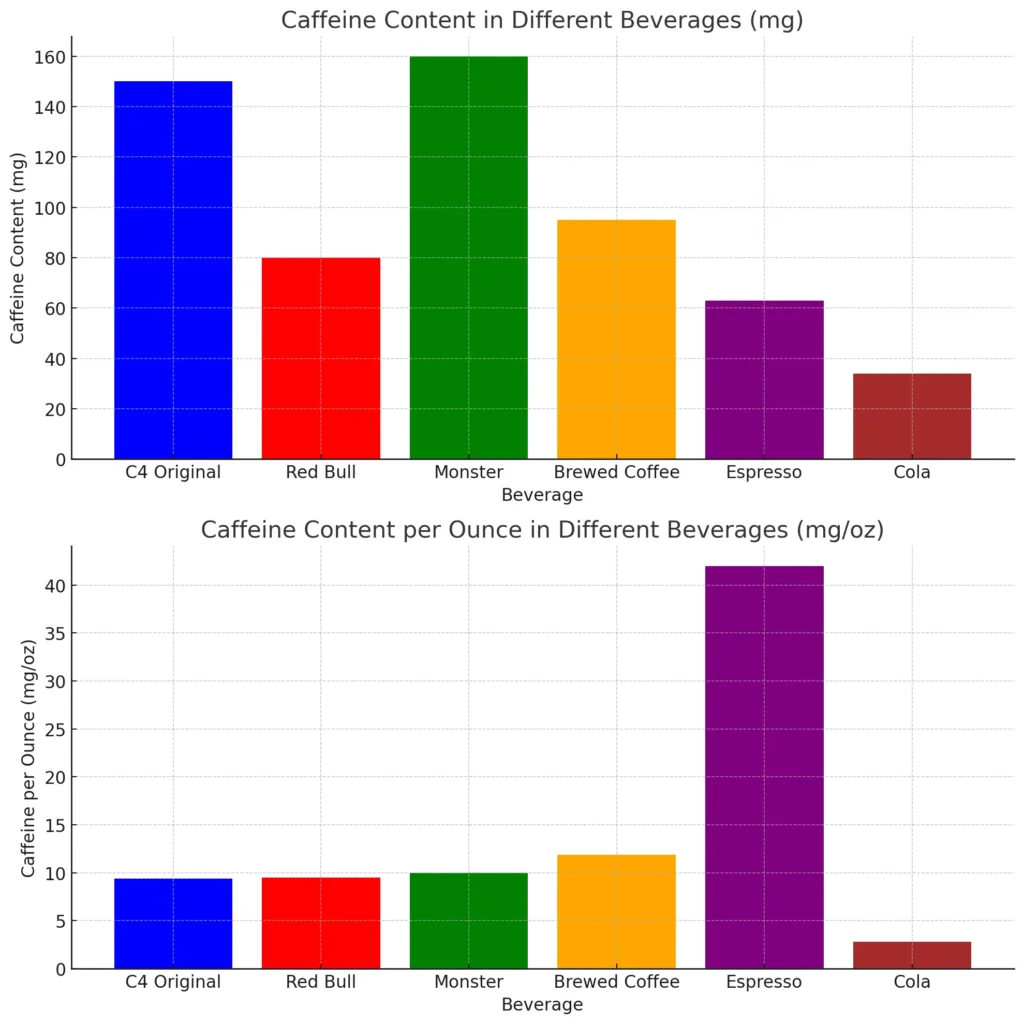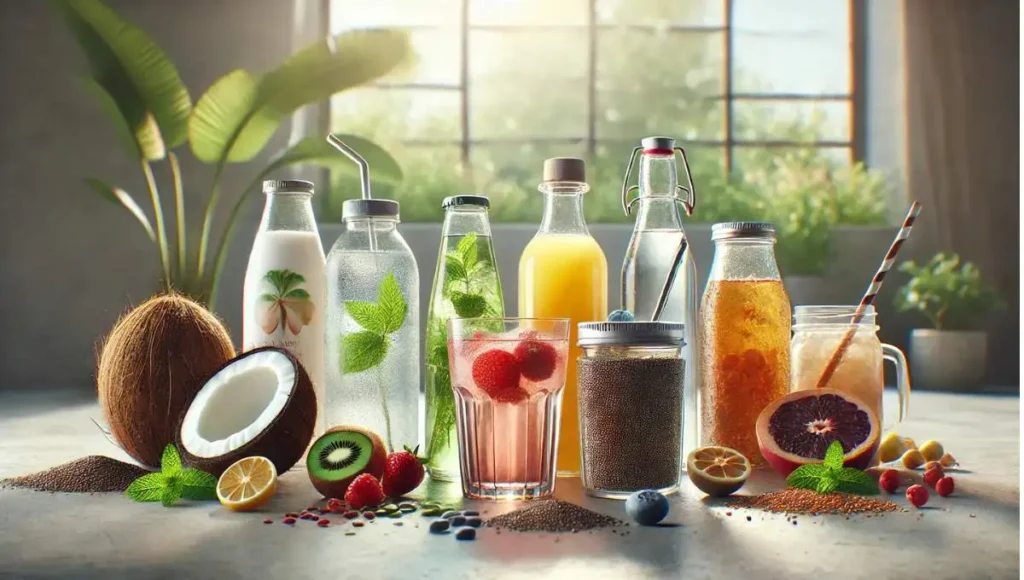Ever wondered if C4 Energy Drink can deliver that caffeine kick to power your day or workout? You’re not alone! As one of the most popular energy drinks on the market, C4 has gained a loyal following among fitness enthusiasts and anyone needing a quick boost.
But a key question remains: Does it contain caffeine? Yes, it does In this post, we’ll dive into whether C4 Energy Drink has caffeine, how much, what’s in its variants, and what it all means for your health. Let’s get started!
What is C4 Energy Drink?
C4 Energy Drink, created by Cellucor, is a go-to choice for those seeking a pre-workout boost or an afternoon pick-me-up. Marketed toward gym-goers and active individuals, it promises enhanced energy, focus, and performance.
What sets C4 apart is its variety—there’s C4 Original, C4 Ultimate, C4 Smart Energy, and more. Each line tweaks the formula, which brings us to the big question: caffeine.
Is it good or bad?
The Good:
In moderation, C4’s caffeine boosts energy, focus, and exercise performance. Ingredients like beta-alanine and citrulline may enhance endurance and muscle recovery. Zero sugar and calories make it a better pick than sugary sodas.
The Bad:
Overdoing it can lead to jitters, insomnia, or a racing heart. Artificial sweeteners, while FDA-approved, spark debate—some studies hint at gut health or metabolism concerns, though evidence is mixed. High caffeine doses (especially 300 mg) aren’t for everyone, particularly those with anxiety or heart issues.
Does C4 Energy Drink Contain Caffeine?
Yes, C4 Energy Drink does contain caffeine! If you’re looking for a straightforward answer, there it is. C4 uses caffeine anhydrous, a concentrated form of caffeine commonly found in energy drinks and supplements. It’s fast-acting and potent, making it ideal for that instant energy surge.
How does it stack up? A typical cup of coffee has about 95 mg of caffeine, while a 12 oz soda might have 30-40 mg. C4, depending on the variant, often delivers a much stronger punch—more on that next.
How Much Caffeine is in C4 Energy Drink?
The caffeine content in C4 varies by product line. Here’s a breakdown based on typical servings (usually 16 oz cans):
- C4 Original: Around 150 mg of caffeine per serving—great for a moderate boost.
- C4 Ultimate: Packs a hefty 300 mg—designed for serious energy needs.
- C4 Smart Energy: Delivers about 200 mg—a balanced option with added focus-enhancing ingredients.
Note: Exact amounts can vary slightly by flavor or batch, so always check the label on your can.
For context, the FDA recommends keeping daily caffeine intake under 400 mg for most adults. A single C4 Ultimate nearly hits that limit, while C4 Original leaves room for your morning coffee. Knowing your tolerance is key!
Variants of C4 Energy Drink along with their caffeine content

C4 Energy Drink, produced by Nutrabolt under the C4 brand, comes in several variants tailored to different needs, all designed to boost energy and performance. Here’s a brief overview of the main ready-to-drink (RTD) variants:
C4 Performance Energy:
The flagship carbonated energy drink, formulated for everyday energy and workout support, featuring a balanced blend of caffeine and performance-enhancing ingredients. It’s widely available in various flavors.
C4 Smart Energy:
A carbonated option focused on mental clarity and focus, using natural caffeine sources like green coffee beans, appealing to those needing cognitive boosts alongside physical energy.
C4 Ultimate Energy:
A high-intensity carbonated drink with elevated caffeine and additional stimulants, targeting athletes or those requiring maximum energy for demanding activities.
C4 Original (Non-Carbonated):
A still, non-carbonated version of the Performance Energy line, offering a similar energy profile in a smoother format for those who prefer no fizz.
C4 Energy Shot:
A compact, concentrated shot for quick energy on the go, less common but ideal for portability and rapid consumption.
Below is a table summarizing the caffeine content for each variant:
| C4 Variant | Caffeine Content | Container Size |
| C4 Performance Energy | 200 mg | 16 fl oz |
| C4 Smart Energy | 200 mg | 16 fl oz |
| C4 Ultimate Energy | 300 mg | 16 fl oz |
| C4 Original (Non-Carbonated) | 200 mg | 12 fl oz |
| C4 Energy Shot | 150 mg | 2 fl oz |
Caffeine content remains consistent across flavors within each variant, though always verify with the product label for accuracy.
Ingredients of C4 Performance Energy (Carbonated)
Below is a general overview of the ingredients found in C4 Energy Drinks, based on the most common variants like C4 Performance Energy (carbonated).
Note that specific ingredients may vary slightly depending on the variant (e.g., Performance, Smart, Ultimate, or non-carbonated versions) and flavor, but I’ll provide a representative list from the standard formulation.
- Carbonated Water: The base of the drink, providing hydration and carbonation.
- CarnoSyn® Beta-Alanine: A patented amino acid that helps buffer lactic acid in muscles, reducing fatigue and enhancing endurance.
- L-Citrulline: An amino acid that boosts nitric oxide production, improving blood flow and exercise performance.
- BetaPower® Betaine Anhydrous: A beet-derived compound that supports hydration and physical performance at the cellular level.
- Malic Acid: A natural acid used as a flavor enhancer and to adjust pH.
- Citric Acid: Another acid for flavor and preservation.
- Caffeine Anhydrous: The primary stimulant, providing 200 mg per 16 fl oz can in this variant.
- Natural Flavors: Plant-derived flavorings (specific sources not disclosed).
- Potassium Sorbate: A preservative to maintain freshness.
- Sucralose: An artificial sweetener for zero-sugar sweetness.
- Acesulfame Potassium (Ace-K): Another artificial sweetener to enhance taste.
- N-Acetyl-L-Tyrosine: A soluble form of tyrosine that supports focus and mental energy by aiding neurotransmitter production.
- Niacinamide (Vitamin B3): Supports energy metabolism (typically 30 mg per can).
- Cyanocobalamin (Vitamin B12): Aids energy production and red blood cell formation (typically 6 mcg per can).
Nutritional Information for C4 Performance Energy (Per 16 FL Oz Can)
Below is the nutritional information for C4 Performance Energy (carbonated), the most widely recognized variant of C4 Energy Drink, based on a standard 16 fl oz (473 ml) can.
Nutritional content is fairly consistent across C4’s ready-to-drink variants (e.g., Smart Energy, Ultimate), with differences primarily in caffeine content rather than macronutrients or calories.

This table focuses purely on the amounts without DV percentages. The zero-calorie, zero-sugar profile is consistent across all C4 RTD variants, with caffeine being the primary variable. Check the label on your specific can for confirmation, as minor regional differences might apply.
C4 Energy Drink vs. Other Caffeinated Beverages

C4 Energy Drink variants range from 150 mg (Original) to 300 mg (Ultimate), positioning them competitively among energy drinks like Monster (160 mg) and Bang (300 mg). Compared to brewed coffee (95 mg) or cola (34 mg), C4 delivers a stronger caffeine punch per serving, ideal for a quick boost.
Espresso (63 mg/oz) offers high potency per ounce, but its small volume keeps total caffeine lower than most energy drinks.
Healthy Caffeine-Free Alternatives to C4 Energy Drink

C4 Energy Drink is known for its caffeine-driven boost, but if you’re looking for healthy, caffeine-free alternatives to maintain energy without stimulants, there are several natural options.
Below is a list of caffeine-free alternatives that provide sustained energy through hydration, nutrients, or natural compounds, avoiding the jitters or crashes associated with caffeine.
Chia Seed Water
Why it works: Chia seeds are rich in fiber, omega-3 fatty acids, and protein, which provide a slow-release energy source. When soaked in water, they form a gel that hydrates and sustains energy levels.
- How to prepare: Mix 1-2 tablespoons of chia seeds in 12-16 oz of water, let sit for 10-15 minutes, and drink. Enhance the taste by adding a splash of lemon juice.
- Benefits: Supports hydration, stabilizes blood sugar, and aids digestion.
Coconut Water
Why it works: Naturally packed with electrolytes like potassium and magnesium, coconut water rehydrates and replenishes the body, boosting energy without caffeine.
- How to use: Drink 12-16 oz plain or chilled. Opt for unsweetened, pure coconut water with no added sugars.
- Benefits: Low-calorie, hydrating, and rich in antioxidants.
Herbal Tea (e.g., Peppermint or Rooibos)
Why it works: Caffeine-free herbal teas like peppermint invigorate through their refreshing taste, while rooibos provides antioxidants and minerals for a subtle energy lift.
- How to prepare: Steep a tea bag or 1-2 teaspoons of loose herbs in hot water for 5-10 minutes. Enjoy hot or iced.
- Benefits: Calms the digestive system, supports overall wellness, and hydrates.
Fruit-Infused Sparkling Water
Why it works: The carbonation offers a sensory boost, while natural fruit sugars (in moderation) provide quick energy. It’s a refreshing, zero-calorie option.
- How to prepare: Add slices of citrus, berries, or cucumber to plain sparkling water. Allow it to steep for a few minutes to blend the flavors.
- Benefits: Hydrates, satisfies cravings for fizzy drinks, and avoids artificial additives.
Homemade Smoothie (No Caffeine)
Why it works: Blending fruits (e.g., bananas, berries) with spinach or oats delivers natural sugars, fiber, and vitamins for sustained energy.
- How to prepare: Blend 1 banana, a handful of spinach, ½ cup berries, and water or almond milk. Add a tablespoon of oats or nut butter for staying power.
- Benefits: Nutrient-dense, filling, and customizable.
Golden Milk (Turmeric Latte)
Why it works: Turmeric and spices like ginger and cinnamon have anti-inflammatory properties that support energy by reducing fatigue.
- How to prepare: Heat 1 cup of milk (dairy or plant-based) with ½ teaspoon turmeric, a pinch of black pepper, and a dash of cinnamon. Sweeten with honey if desired.
- Benefits: Boosts vitality, supports joint health, and warms the body.
Carob Drink
Why it works: Carob, a caffeine-free alternative to cocoa, contains pinitol and minerals that provide a mild energy boost and satisfy sweet cravings.
- How to prepare: Mix 1-2 teaspoons of carob powder with hot water or milk. Sweeten lightly if needed.
- Benefits: Naturally sweet, rich in fiber, and supports digestion.
Why Choose Caffeine-Free Alternatives?
These options avoid the high caffeine doses in C4 (e.g., 200-300 mg per serving), which can cause jitters, increased heart rate, or dependency. Instead, they rely on hydration, natural nutrients, and slow-release energy sources to keep you going without overloading your system.
They’re ideal for those sensitive to caffeine, looking to reduce intake, or seeking a healthier long-term energy solution.
Pick one based on your taste and needs—whether you crave something fizzy like C4 or a warm, comforting drink. Pair with good sleep and nutrition for the best results!
Recommended Intake
The FDA recommends limiting caffeine intake to no more than 400 mg daily for most healthy adults. Here’s how C4 fits:
- C4 Original (150 mg): Safe for 2 cans daily, leaving room for other sources.
- C4 Smart Energy (200 mg): 2 cans hit the limit—watch additional caffeine.
- C4 Ultimate (300 mg): 1 can is plenty; more risks overconsumption.
Cellucor recommends 1-2 cans daily, depending on tolerance, but advises against exceeding that to avoid side effects.
Conclusion
To wrap it up: Yes, C4 Energy Drink has caffeine, ranging from 150 mg in C4 Original to 300 mg in C4 Ultimate. Whether you’re chasing a workout PR or just surviving a busy day, C4’s got the kick to help—assuming caffeine’s your friend. Prefer no caffeine?
Opt for water, herbal teas, or fruit infusions instead. Use it smartly (1-2 cans max), and it’s a solid boost; overdo it, and you might feel the downsides. Ready to give it a shot? Grab a can, check the label, and see how it fits your vibe. What’s your favorite C4 flavor? Drop it in the comments below—I’d love to hear!
Frequently Asked Questions (FAQ)
Does C4 Have More Caffeine Than Red Bull?
Yes! A 16 oz. C4 Original (150 mg) outpaces an 8.4 oz Red Bull (80 mg). C4 Ultimate (300 mg) blows it out of the water.
Is C4 Caffeine Safe?
For most healthy adults, yes—sticking to the FDA’s 400 mg daily limit keeps it safe. Consult a doctor if you’re unsure, especially if pregnant or managing health conditions.
Can I Drink C4 Every Day?
Daily use is fine for some, but watch your total caffeine intake. Cycling off occasionally can prevent tolerance buildup.
Does C4 Have Sugar or Calories?
Most C4 drinks are sugar-free and low-calorie (around 0-5 calories), sweetened with artificial sweeteners like sucralose.

